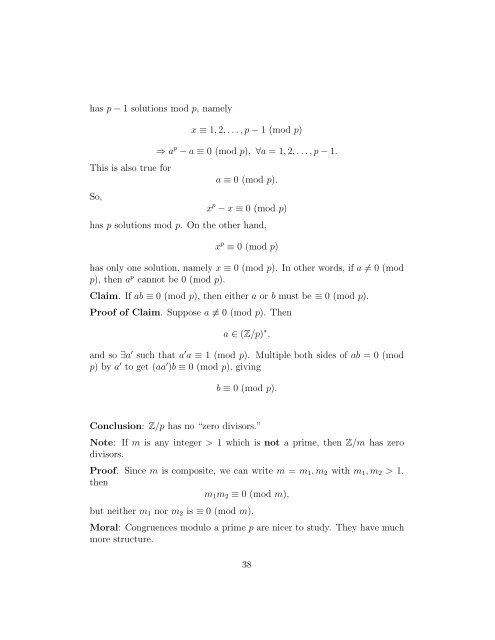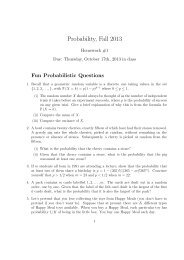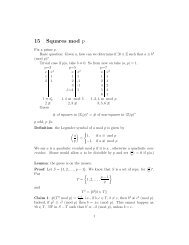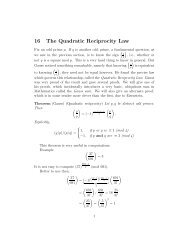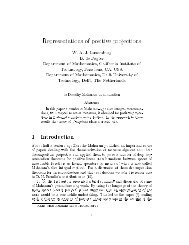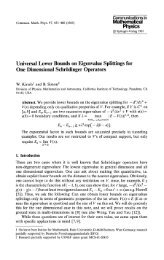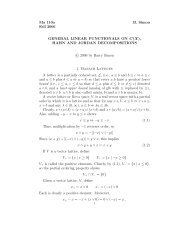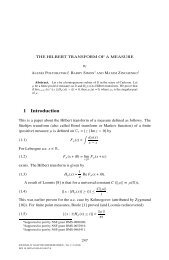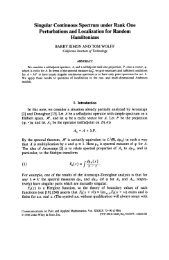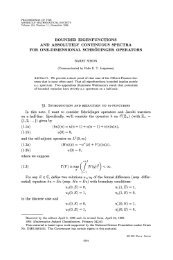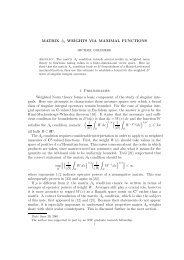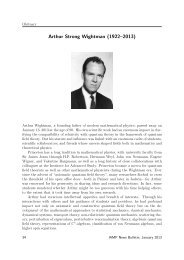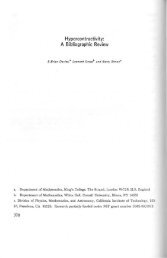1 Basic Notions - Caltech Mathematics Department
1 Basic Notions - Caltech Mathematics Department
1 Basic Notions - Caltech Mathematics Department
You also want an ePaper? Increase the reach of your titles
YUMPU automatically turns print PDFs into web optimized ePapers that Google loves.
has p − 1 solutions mod p, namely<br />
Thisisalsotruefor<br />
So,<br />
x ≡ 1, 2,...,p− 1(modp)<br />
⇒ a p − a ≡ 0(modp), ∀a =1, 2,...,p− 1.<br />
a ≡ 0(modp).<br />
x p − x ≡ 0(modp)<br />
has p solutions mod p. On the other hand,<br />
x p ≡ 0(modp)<br />
has only one solution, namely x ≡ 0(modp). In other words, if a = 0(mod<br />
p), then ap cannot be 0 (mod p).<br />
Claim. Ifab ≡ 0(modp), then either a or b must be ≡ 0(modp).<br />
Proof of Claim. Suppose a ≡ 0(modp). Then<br />
a ∈ (Z/p) ∗ ,<br />
and so ∃a ′ such that a ′ a ≡ 1(modp). Multiple both sides of ab =0(mod<br />
p) bya ′ to get (aa ′ )b ≡ 0(modp), giving<br />
b ≡ 0(modp).<br />
Conclusion: Z/p hasno“zerodivisors.”<br />
Note: If m is any integer > 1whichisnot aprime,thenZ/m has zero<br />
divisors.<br />
Proof. Since m is composite, we can write m = m1,m2 with m1,m2 > 1.<br />
then<br />
m1m2 ≡ 0(modm),<br />
but neither m1 nor m2 is ≡ 0(modm).<br />
Moral: Congruences modulo a prime p are nicer to study. They have much<br />
more structure.<br />
38


